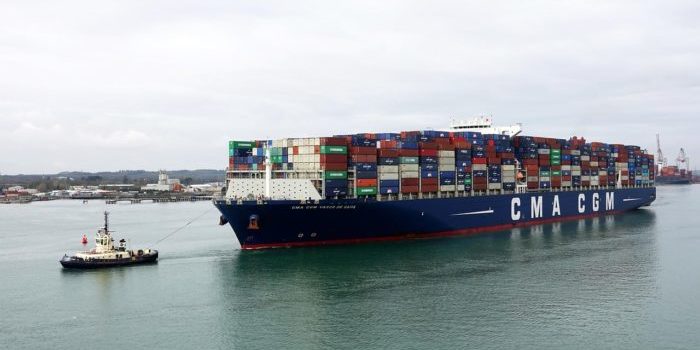(The Center Square) The U.S. Department of Justice filed an emergency motion Thursday asking an appeals court to pause a lower court ruling that ordered President Donald Trump to unwind most of his tariffs within 10 days.
The court granted that motion Thursday afternoon.
An attorney for the Liberty Justice Center, which brought the case on behalf of small businesses, said the stay was a procedural step.
“While the Court of Appeals for the Federal Circuit has temporarily stayed the lower court’s judgment and injunction, this is merely a procedural step as the court considers the government’s request for a longer stay pending appeal,” said Jeffrey Schwab, senior counsel for the Liberty Justice Center.
Schwab said the court set a June 5 deadline for the plaintiffs to respond.
“We are confident the Federal Circuit will ultimately deny the government’s motion shortly thereafter, recognizing the irreparable harm these tariffs inflict on our clients,” Schwab said. “This harm includes the loss of critical suppliers and customers, forced and costly changes to established supply chains, and, most seriously, a direct threat to the very survival of these businesses.”
Trump has made tariffs the focal point of his second term, using the import duties to reorder global trade to benefit the U.S. and as the underpinning for many of his economic policies.
A court ruling Wednesday threw Trump’s plans into limbo. A federal court ruled that Trump did not have unilateral authority to impose tariffs under an emergency law. The three-judge panel on the U.S. Court of International Trade unanimously ruled Congress did not give tariff authority to the president under the International Emergency Economic Powers Act of 1977. The court gave Trump 10 days to unwind all the tariffs he issued under IEEPA.
The administration quickly filed a notice of appeal. On Thursday, it filed an emergency motion asking for a stay.
“This Court should immediately stay that judgment, which is rife with legal error and upends President Trump’s efforts to eliminate our exploding trade deficit and reorient the global economy on an equal footing,” attorneys for the Department of Justice wrote. “The injunction unilaterally disarms the United States in the face of the longstanding predatory trade practices of other countries – who, notwithstanding the injunction, remain free to impose punitive tariffs on American products and hobble our economy.”
While the White House criticized the ruling on Thursday, it denied that the Court of International Trade would weaken its negotiating position. White House Press Secretary Karoline Leavitt said Thursday that other nations were eager to continue good-faith talks on trade and wouldn’t be dissuaded by the ruling. Leavitt said the administration would follow the law and plan to fight the case to the U.S. Supreme Court.
“The president’s trade policy will continue,” she said. “We will comply with the court order, but yes, the president has other legal authorities where he can implement tariffs.”
Those comments contradict what DOJ attorneys wrote in the emergency motion.
“The injunction threatens to unwind months of foreign policy decision-making and sensitive diplomatic negotiations, at the expense of the Nation’s economic well-being and national security,” DOJ attorneys wrote.
The DOJ also said the ruling “disables the President” amid “time-sensitive negotiations with multiple foreign countries over future trade agreements.” They further warned of “immediate, catastrophic harms that would flow from enjoining the President’s tariff authority.”
Economists, businesses and some publicly traded companies have warned that tariffs could raise prices on a wide range of consumer products.
Trump has said he wants to use tariffs to restore manufacturing jobs lost to lower-wage countries in decades past, shift the tax burden away from U.S. families, and pay down the national debt.
A tariff is a tax on imported goods paid by the person or company that imports the goods. The importer can absorb the cost of the tariffs or try to pass the cost on to consumers through higher prices.

